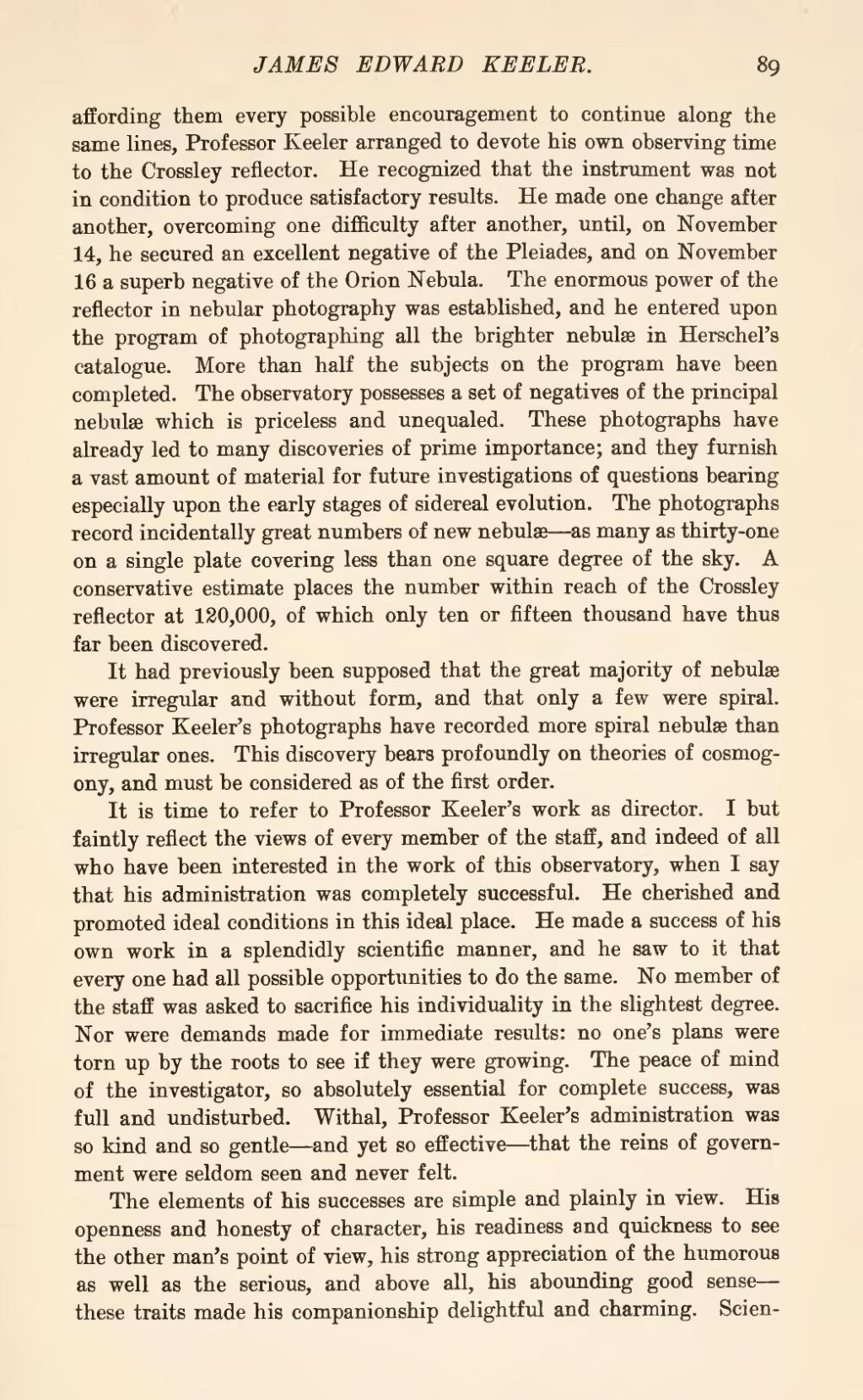affording them every possible encouragement to continue along the same lines, Professor Keeler arranged to devote his own observing time to the Crossley reflector. He recognized that the instrument was not in condition to produce satisfactory results. He made one change after another, overcoming one difficulty after another, until, on November 14, he secured an excellent negative of the Pleiades, and on November 16 a superb negative of the Orion Nebula. The enormous power of the reflector in nebular photography was established, and he entered upon the program of photographing all the brighter nebulæ in Herschel's catalogue. More than half the subjects on the program have been completed. The observatory possesses a set of negatives of the principal nebulæ which is priceless and unequaled. These photographs have already led to many discoveries of prime importance; and they furnish a vast amount of material for future investigations of questions bearing especially upon the early stages of sidereal evolution. The photographs record incidentally great numbers of new nebulae—as many as thirty-one on a single plate covering less than one square degree of the sky. A conservative estimate places the number within reach of the Crossley reflector at 120,000, of which only ten or fifteen thousand have thus far been discovered.
It had previously been supposed that the great majority of nebulæ were irregular and without form, and that only a few were spiral. Professor Keeler's photographs have recorded more spiral nebulæ than irregular ones. This discovery bears profoundly on theories of cosmogony, and must be considered as of the first order.
It is time to refer to Professor Keeler's work as director. I but faintly reflect the views of every member of the staff, and indeed of all who have been interested in the work of this observatory, when I say that his administration was completely successful. He cherished and promoted ideal conditions in this ideal place. He made a success of his own work in a splendidly scientific manner, and he saw to it that every one had all possible opportunities to do the same. No member of the staff was asked to sacrifice his individuality in the slightest degree. Nor were demands made for immediate results: no one's plans were torn up by the roots to see if they were growing. The peace of mind of the investigator, so absolutely essential for complete success, was full and undisturbed. Withal, Professor Keeler's administration was so kind and so gentle—and yet so effective—that the reins of government were seldom seen and never felt.
The elements of his successes are simple and plainly in view. His openness and honesty of character, his readiness and quickness to see the other man's point of view, his strong appreciation of the humorous as well as the serious, and above all, his abounding good sense—these traits made his companionship delightful and charming. Scien-
